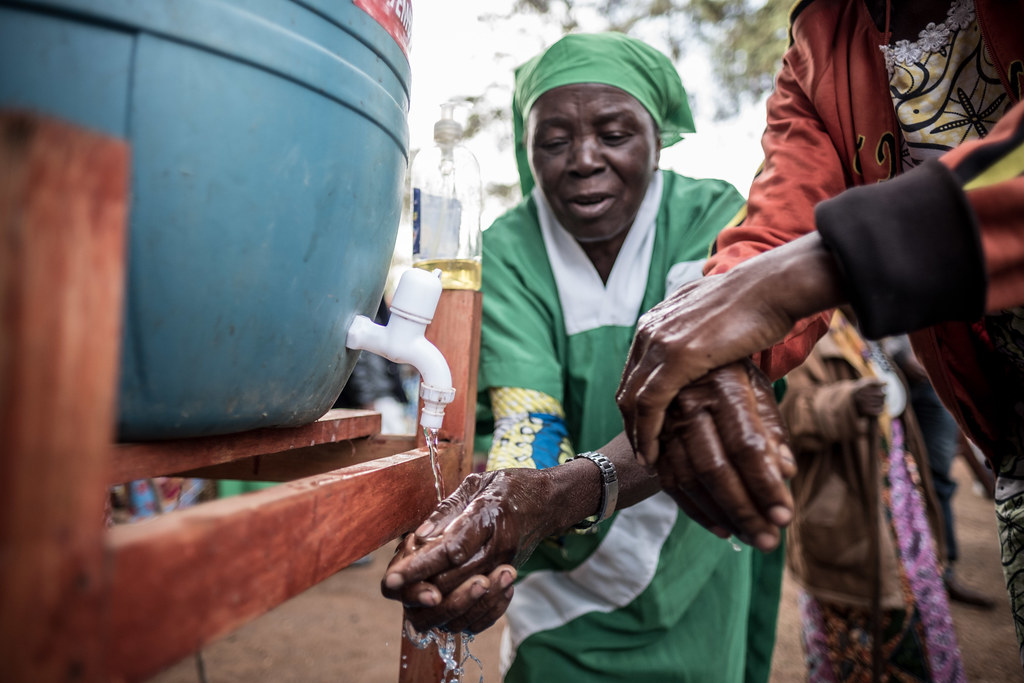Caritas Urges Access to Water and Sanitation
Access to Clean Water a Matter of Life and Death

George Wambugu, a water specialist for CAFOD’s (Caritas England and Wales) emergency team reflects on why access to water and sanitation needs to be prioritized for the poorest people and the sick and vulnerable.
Over 2.2 billion people in the world don’t have access to safe water and 4.4 billion don’t have adequate sanitation, even though this is a fundamental right. The effect of this on people’s lives and health is massive.
In the absence of a reliable water source, communities may have to rely on contaminated water. People in water-scarce areas walk far in search of water – over 5 km – and it is worse in drought-prone areas. Women and girls are most affected since they are the ones who fetch water for households.
With no latrines, people defecate in the bush, and contents get flushed into water sources during rains – not forgetting flies bringing dirt from them back into homesteads. Women and girls are also exposed to abuse and sexual assault since people use the bush at night or early morning for privacy.
Lack of safe water and adequate latrines increases the incidence of diarrheal disease and children and has an even greater health impact. An estimated half a million people around the world die from drinking dirty water each year.
Caritas member organizations (MOs) in many regions of the world work with communities to identify and develop suitable water sources for domestic use and for basic irrigation. These include protected hand-dug wells, boreholes, spring capping, and simple rural water supply schemes.
MOs also promote Community-Led Total Sanitation (CLTS) and hygiene promotion. To ensure sustainability, the community is engaged from project inception to project completion, and elected representatives are trained in the management of WASH facilities and the environment. It is important to ensure that people have the skills in the community to repair and maintain hand-pumps and other facilities.
Access to clean water and sanitation is especially important in health facilities. The Catholic Church is the largest civil institution that provides healthcare in the world. It builds and runs healthcare facilities (HFCs) and is present – through Caritas and other religious bodies – and provides medical care in some of the world’s poorest and most difficult contexts, such as where there’s war, poverty, natural disasters, and an absence of access to basic services such as clean water and hygiene.
Due to funding constraints, many of the healthcare facilities do not have adequate WASH (Water, Sanitation and Hygiene) services. In many cases, water is fetched from existing poor community water sources to be used at the HCFs.
Healthcare waste disposal is not in many cases prioritized due to funding constraints and the disposal facilities are not adequate to ensure the waste is rendered non-infectious.
It’s very important for the management of these facilities to understand the minimum standards under which these facilities need to operate and ensure there is enough funding to sustain the minimum standards.
To be able to reach these standards, initial funding is needed from well-wishers to ensure facilities like latrines, incinerators, and water supply systems are upgraded to meet the standards. This requires training of the staff in the standards and collaboration with the country’s government.
Access to clean water is even more important during this time of COVID-19 to ensure patients and healthcare workers alike are able to protect themselves from the virus.
Pope Francis Asks Clean Water for All
Related

Reflection by Bishop Enrique Díaz: The Lord’s mercy is eternal. Alleluia
Enrique Díaz
27 April, 2025
5 min

After Eight Days Jesus Arrived: Commentary by Fr. Jorge Miró
Jorge Miró
26 April, 2025
3 min

The Perspectivas del Trabajo Foundation is founded with the aim of promoting virtues for professional development
Exaudi Staff
25 April, 2025
2 min

Reflection by Bishop Enrique Díaz: Alleluia, alleluia
Enrique Díaz
20 April, 2025
5 min
 (EN)
(EN)
 (ES)
(ES)
 (IT)
(IT)

